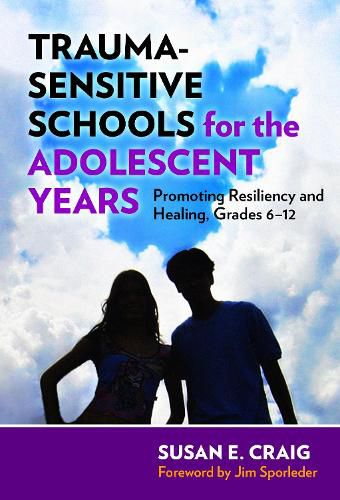Readings Newsletter
Become a Readings Member to make your shopping experience even easier.
Sign in or sign up for free!
You’re not far away from qualifying for FREE standard shipping within Australia
You’ve qualified for FREE standard shipping within Australia
The cart is loading…






The trauma-sensitive schools movement is the result of a confluence of forces that are changing how educators view students’ academic and social problems, including the failure of zero tolerance policies to resolve issues of school safety, bullying, and academic failure, as well as a new understanding of adolescents’ disruptive behavior. In this follow-up to her bestseller, Trauma-Sensitive Schools, Susan Craig provides secondary school teachers and administrators with practical ideas for how to improve students’ achievement by implementing a trauma-sensitive approach to instruction. Along with clear explanations of the role that childhood adversity and trauma play in determining academic success, readers will find dozens of concrete strategies to help them:
View poor academic and social progress through a trauma-sensitive lens. Create a school climate that fosters safety and resiliency in vulnerable teenagers. Establish relationships with students that support their efforts to self-regulate. Design instruction that reflects the social nature of the brain. Work with the brain’s neuroplasticity to increase adolescents’ executive functioning. Reduce teacher attrition in high-risk schools by decreasing secondary traumatic stress.
Influence educational reforms by aligning them with current research on childhood trauma and its effects on learning.
Book Features:
Provides an overview of the effects of three types of trauma on adolescent development: early childhood adversity, community violence, and systemic inequities. Links the effects of trauma on students’ cognitive development to educational reform efforts. Integrates research on adolescents’ neurodevelopment and current educational best practices. Builds the capacity of education professionals to successfully manage the behavior of adolescents with symptoms of complex developmental trauma.
$9.00 standard shipping within Australia
FREE standard shipping within Australia for orders over $100.00
Express & International shipping calculated at checkout
The trauma-sensitive schools movement is the result of a confluence of forces that are changing how educators view students’ academic and social problems, including the failure of zero tolerance policies to resolve issues of school safety, bullying, and academic failure, as well as a new understanding of adolescents’ disruptive behavior. In this follow-up to her bestseller, Trauma-Sensitive Schools, Susan Craig provides secondary school teachers and administrators with practical ideas for how to improve students’ achievement by implementing a trauma-sensitive approach to instruction. Along with clear explanations of the role that childhood adversity and trauma play in determining academic success, readers will find dozens of concrete strategies to help them:
View poor academic and social progress through a trauma-sensitive lens. Create a school climate that fosters safety and resiliency in vulnerable teenagers. Establish relationships with students that support their efforts to self-regulate. Design instruction that reflects the social nature of the brain. Work with the brain’s neuroplasticity to increase adolescents’ executive functioning. Reduce teacher attrition in high-risk schools by decreasing secondary traumatic stress.
Influence educational reforms by aligning them with current research on childhood trauma and its effects on learning.
Book Features:
Provides an overview of the effects of three types of trauma on adolescent development: early childhood adversity, community violence, and systemic inequities. Links the effects of trauma on students’ cognitive development to educational reform efforts. Integrates research on adolescents’ neurodevelopment and current educational best practices. Builds the capacity of education professionals to successfully manage the behavior of adolescents with symptoms of complex developmental trauma.